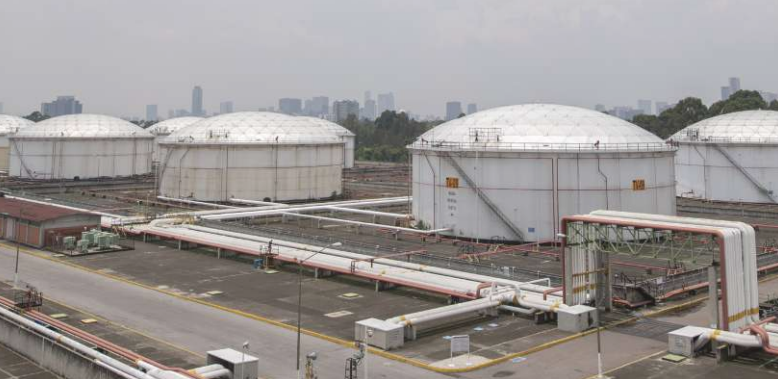The federal government reported on actions taken against fuel theft in Mexico, known as huachicol.
The Ministry of Energy (Sener) reported that actions against fuel theft have been reinforced. As a result, in 10 months, 8,783 clandestine taps were secured and 53 million liters of product were recovered, with an estimated market value of 1.2738 billion pesos.
In addition, authorities confiscated 1,681 vehicles and 413 properties, while 434 people were arrested for their alleged involvement in these illegal activities.
In Mexico, the term “huachicol” is used to describe stolen or adulterated fuel, as well as the crime of illegally extracting it from Petróleos Mexicanos (Pemex) pipelines.
Huachicol
To strengthen fuel monitoring and traceability, Sener is promoting the creation of the Unified Fuel Monitoring Platform (PUMC). The project is being developed in conjunction with the Digital Transformation and Telecommunications Agency (ATDT), the SAT, Pemex, the CNE, the ASEA, the Profeco, and the Sedena.
The new digital platform will bring together strategic information on the energy sector. It will also enable the tracking of hydrocarbon flows throughout the entire supply chain. With the PUMC, the government seeks to strengthen inter-institutional oversight, combat fuel theft more effectively, and make faster and more accurate decisions in real time.
As a result of this coordination, between October 2024 and July 2025, 8,783 clandestine taps were secured and 53.07 million liters of fuel were recovered, with an approximate market value of 1.2738 billion pesos.
In addition, 1,681 vehicles and 413 properties were seized, and 434 people linked to these illegal activities were arrested, strengthening the protection of Pemex’s strategic assets.
Constant verification of licensees’ activities ensures compliance with the conditions set out in the license agreements. At the same time, it strengthens the traceability of energy products throughout the supply chain.
Origin
The word “huachicol” comes from the verb “guachicolear,” used in the 19th century in Puebla to describe the practice of adulterating alcoholic beverages, such as wine or aguardiente, by mixing them with water or low-quality alcohol.
From this term came “huachicolero,” the name given to those who produced or sold these adulterated beverages. Over time, the expression evolved and became associated with the theft or tampering of fuel for illegal resale.

